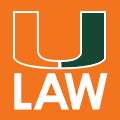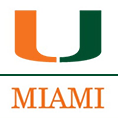Charles R. Lipcon has represented victims of cruise ship personal injury and cruise line sexual assault and claims for more than 50 years. His firm, Lipcon, Margulies & Winkleman, P.A., has successfully handled more than 3,000 cases and recovered well over $500 million on behalf of their clients.
Mr. Lipcon was named "Lawyer of the Year" in Admiralty & Maritime by US News & World Report (Miami) in 2020 and his firm is named to "Best Law Firms" by US News & World Report.
Mr. Lipcon and his firm can assist with the following types of accidents and injuries:
- Cruise Ship Passenger Accidents
- Cruise Ship Sexual Assault
- Cruise Ship Crewmember Injuries
- Cruise ship shore excursions
- Cruise Ship medical malpractice
- Cruise ship class actions
- Boating, yacht, jet ski, parasailing, scuba diving, snorkeling accidents
- Barge, cargo, tanker & fishing accidents and injuries
- Hotel, Resort & Vacation accidents and injuries
- Hotel, Resort & Vacation sexual assaults
Mr. Lipcon has written several publications including "Unsafe on the High Seas", "The Cruise Line Law Reporter" and "Seafarers Rights". He has been featured on major news networks like CNN, MSNBC, ABC, Fox News, and more.
Contact Mr. Lipcon and his team for a free confidential consultation.
- University of Miami School of Law
- J.D. (1971) | Law
-

- University of Miami
- B.A. (1968) | Government & Philosophy
-

- Founding Attorney
- Lipcon, Margulies & Winkleman, P.A.
- - Current
- Cruise Line Law Reporter
- Lipcon, Margulies & Winkleman, P.A.
- Unsafe on the High Seas
- I. Adels Publishing
- Seaman's Rights in the United States
- I. Adels Publishing
- Help for the Auto Accident Victim
- I. Adels Publishing
- ABC Nightline, 20/20, CNN Headline News, Fox News, NBC Nightly News, the Today Show and MSNBC, TV Appearances/Interviews
- Admiralty Law Lectures, Guest Lecturer, University of Miami
- Admiralty Law Lectures, Guest Lecturer, St. Thomas School of Law
- High Stakes on the High Seas: How to Successfully Handle Cruise Ship Injury or Death Cases, Louisiana Trial Lawyers Association Convention
- Update on Cruise Ship Liability and Forum Selection/ Arbitration Clauses, American Trial Lawyers Association Convention
- AV Preeminent Peer Rating
- Martindale-Hubbell
- Best Law Firms
- US News & World Report
- 2016-2025
- Best Lawyers in America
- Best Lawyers
- 2016-2025
- Super Lawyer
- Super Lawyers
- 2007-2024
- 10.0 Superb Rating
- Avvo
- American Association for Justice
- Member
- Current
-

- Florida Justice Association
- Member
- Current
-

- American Bar Association
- Member
- Current
-

- Florida Admiralty Trial Lawyer's Association
- Founder
- Current
-

- Federal Bar Association
- Member
- Current
-

- Florida
-

- 5th Circuit
-

- 11th Circuit
-

- D.C. Circuit
-

- U.S. Court of Federal Claims
-

- U.S. District Court, District of Colorado
-

- U.S. District Court, Southern District of Texas
-

- U.S. District Court, Southern, Middle & Northern Districts of Florida
-

- U.S. Supreme Court
-

- Free Consultation
- Contingent Fees
- Maritime Law
- Personal Injury
- Wrongful Death
- Appeals & Appellate
- Civil Appeals, Federal Appeals
- English: Spoken, Written
- Q. Boarding a ship with out the permission of the Capt. is it illegal? and is it a act of piracy?
- A: Yes, boarding a ship without the permission of the captain or an officer or crewmember designated by him is a violation of international maritime law. At the very minimum, the individual boarding the vessel without permission may be considered a stowaway, but in many countries, doing so qualifies as piracy and the guilty party may be subject to fines as well as imprisonment. However, when an individual boards a vessel for the purposes of saving a life, preventing a personal injury or property damage, they are not considered to be committing piracy.
- Q. Can someone please help me...who is liable in a boating accident, the person operating the vessel, the owner, or both?
- A: A) When a boating accident occurs, several people can be held liable for the incident, depending on what exactly caused the accident to occur in the first place, who was operating the vessel and where exactly the accident took place. If the accident occurred on navigable waters, meaning waters that are used for commerce or transportation purposes, then federal admiralty and maritime law could apply. If the accident occurred on non-navigable waters (a small lake, pond, etc.) then state laws apply. Federal maritime laws carry much more stringent penalties and can hold more people liable for one accident, whereas state laws often fail to properly prosecute individuals or companies and can resulting ... Read More



 Lipcon, Margulies & Winkleman, P.A. - Award Winning Maritime Lawyers
Lipcon, Margulies & Winkleman, P.A. - Award Winning Maritime Lawyers
 Cruises Undercover: The Truth Below Deck
Cruises Undercover: The Truth Below Deck
 Crimes on Board Luxury Cruise Ships Becoming More Common
Crimes on Board Luxury Cruise Ships Becoming More Common
 Charles Lipcon and His Team Are Here to Help You and Protect Your Rights!
Charles Lipcon and His Team Are Here to Help You and Protect Your Rights!
 Charles Lipcon Interviewed Live on MSNBC Regarding Congressional Investigation of George Smith Case
Charles Lipcon Interviewed Live on MSNBC Regarding Congressional Investigation of George Smith Case
 Maritime Attorney -- Charles R. Lipcon -- (877) 233-1238
Maritime Attorney -- Charles R. Lipcon -- (877) 233-1238
 Maritime Attorney Charles Lipcon Talks about a Missing Groom on Board a Cruise Ship
Maritime Attorney Charles Lipcon Talks about a Missing Groom on Board a Cruise Ship
 Maritime lawyer Charles R. Lipcon interviewed on The Early Show
Maritime lawyer Charles R. Lipcon interviewed on The Early Show
 Miami Maritime Attorney Charles Lipcon Addresses Important Issues
Miami Maritime Attorney Charles Lipcon Addresses Important Issues